Key takeaways:
- Cybersecurity is essential as technology becomes more integrated into daily life, emphasizing the need for strong passwords and two-factor authentication.
- Choosing the right cybersecurity tools involves assessing specific needs, considering user experience, and relying on trusted reviews.
- Implementing multi-factor authentication and keeping software updated are key strategies to enhance security and prevent cyberattacks.
- Personal experiences, such as utilizing a password manager and engaging in cybersecurity communities, significantly improve awareness and security practices.
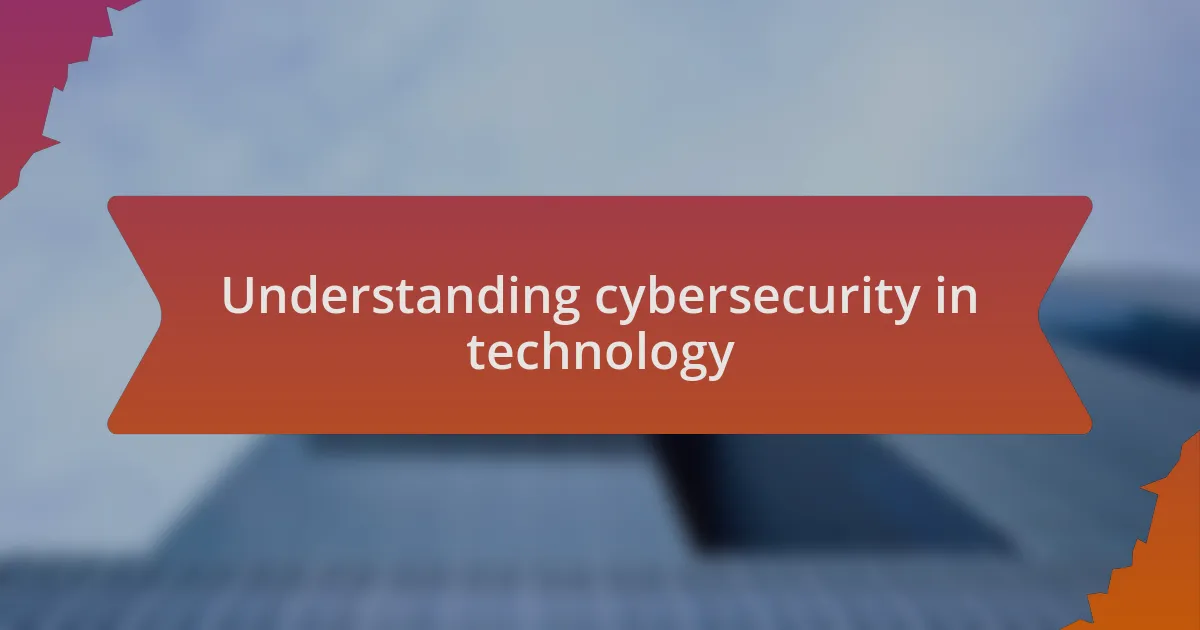
Understanding cybersecurity in technology
Cybersecurity is vital as technology becomes increasingly integrated into our daily lives. I remember the first time I experienced a data breach; it was unsettling to realize how vulnerable I was. It raised the question—are we really prepared for the constant threat of cyberattacks?
With every new device or application, I find myself grappling with the balance between convenience and security. I often ask myself, how much trust should we place in technology? The emotional weight of this dilemma sometimes feels heavier than the password management issue—after all, your personal data is at stake.
Understanding cybersecurity requires us to think critically about what measures we take to protect our digital identities. I’ve learned that implementing basic protections, like strong passwords and two-factor authentication, makes a significant difference. It’s a small investment in time that pays off in peace of mind, don’t you think?
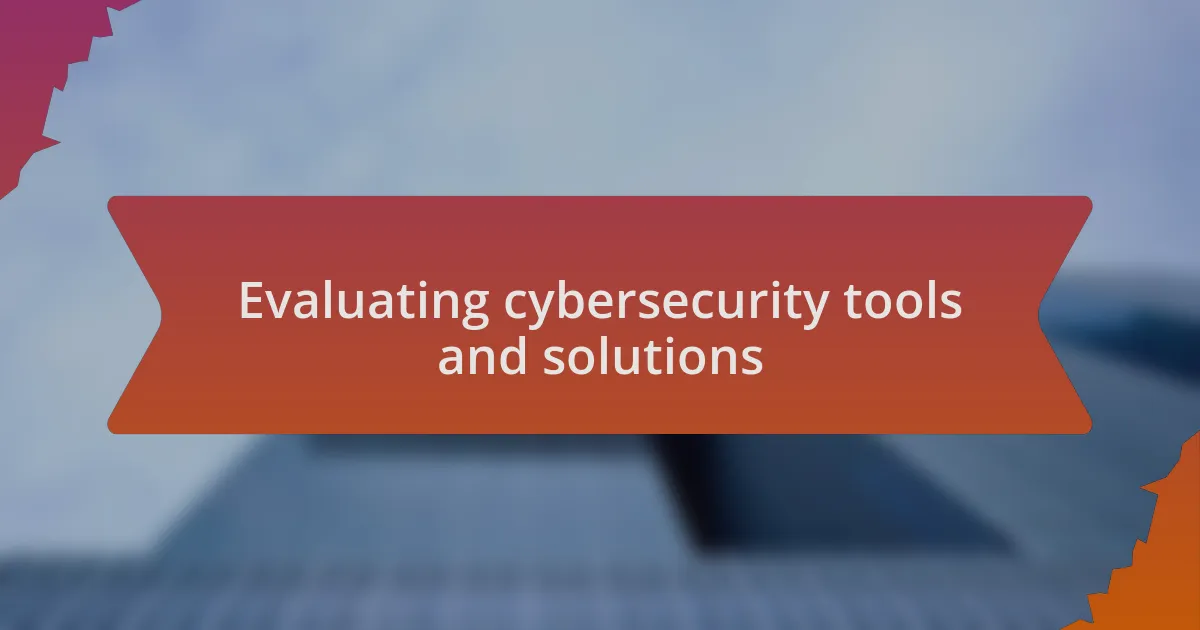
Evaluating cybersecurity tools and solutions
When evaluating cybersecurity tools, I start by identifying my specific needs, whether it’s protecting sensitive customer data or securing personal information. I learned this the hard way after investing in a solution that frankly didn’t fit my requirements, leading to frustration rather than security. It’s essential to reflect on what’s truly necessary for your situation—this can save both time and money.
I also consider the user experience of each tool. In my experience, a complicated interface can lead to underutilization of vital features. For instance, I once tried a highly-rated antivirus that was so cumbersome that I eventually stopped using it altogether. Don’t you think the effectiveness of a tool is often overshadowed by how easy it is to navigate?
Lastly, I seek reviews and real-world applications from trusted sources. I’ve found that firsthand accounts can highlight what a tool does exceptionally well or what pitfalls to avoid. For example, a friend of mine swore by a specific firewall until it failed to recognize a new threat, emphasizing the importance of always being in the loop about any updates or changes in the security landscape. How can we ensure that our chosen tools remain effective in a constantly evolving cyber environment?
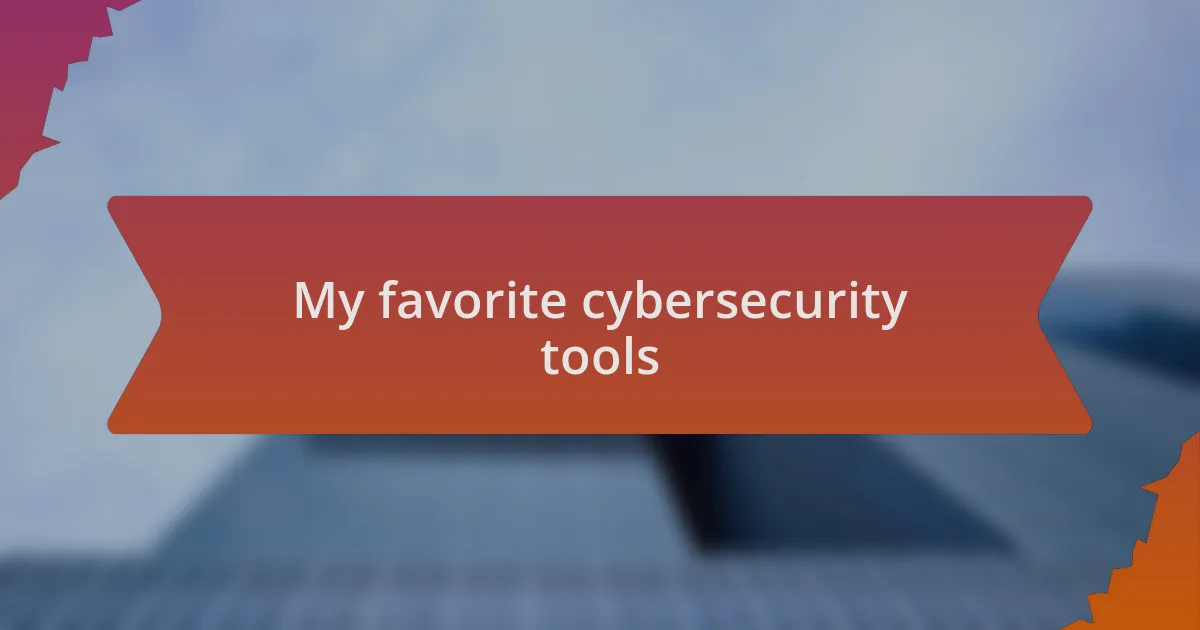
My favorite cybersecurity tools
When it comes to my favorite cybersecurity tools, I have to highlight Bitdefender. I remember the first time I used it; the interface was so user-friendly that I felt confident in navigating the various features. It provided comprehensive protection without overwhelming me—something I truly value. Have you ever tried a tool that just clicked for you? That was my experience with Bitdefender.
Another essential tool I swear by is LastPass. It’s critical for managing passwords, especially in today’s world where maintaining unique, complex passwords can feel daunting. I recall a time when I struggled with remembering multiple passwords and frequently reset them, leading to a frustrating cycle. Since adopting LastPass, my stress around password management has completely vanished. Don’t you think having that peace of mind is worth its weight in gold?
Lastly, I can’t overlook the importance of a reliable VPN. ExpressVPN has been my go-to solution. On a recent trip, I found myself needing to access work files securely while on public Wi-Fi. Knowing I was protected by a VPN gave me a sense of security that allowed me to focus on my tasks without constantly worrying about data breaches. Have you ever felt that relief of being able to work securely, no matter where you are? That’s what a good VPN can provide.
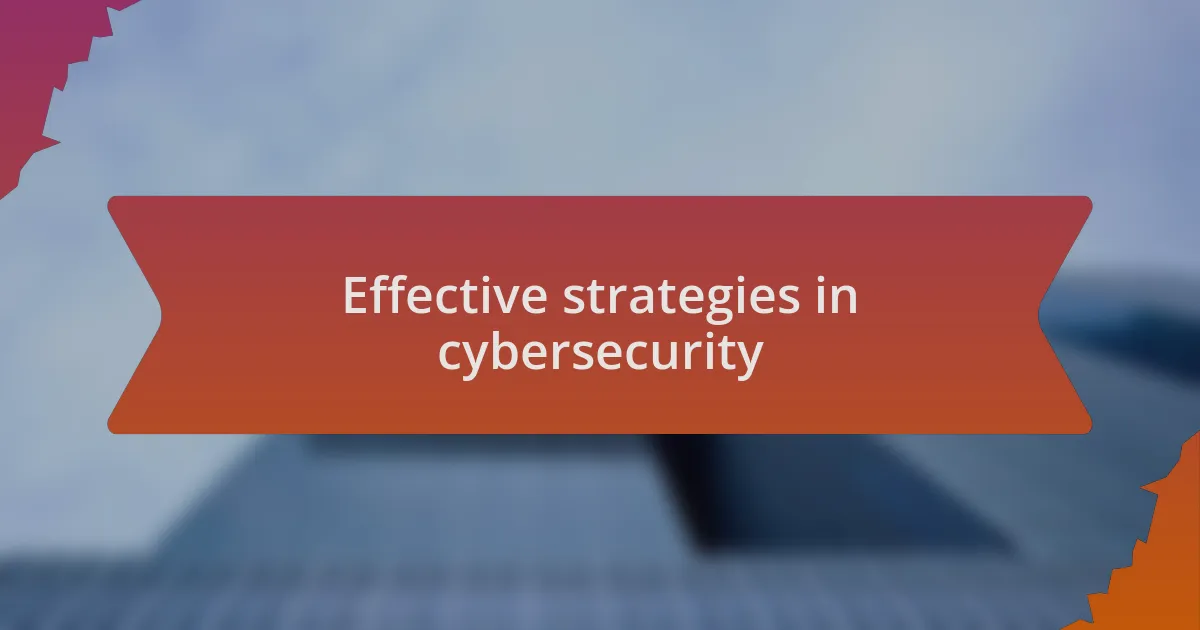
Effective strategies in cybersecurity
One effective strategy in cybersecurity is implementing multi-factor authentication (MFA). I remember feeling a wave of reassurance when I activated it on my accounts. The extra layer of security not only protects my data but also gives me peace of mind, knowing that even if my password gets compromised, there’s still a barrier to access. Have you experienced that sense of security from MFA yet?
Another crucial approach is regular software updates. I can’t emphasize this enough; keeping my software up-to-date has saved me countless headaches. I recall a time when a simple update prevented a potential malware attack on my system. It’s a small yet vital step that often gets overlooked—how often do you check for updates?
Lastly, I believe in the importance of security awareness training. I participated in a workshop that opened my eyes to phishing scams and social engineering tactics. The knowledge I gained from that session has been invaluable. It was eye-opening to realize how easily one can fall into a trap without proper knowledge. Do you feel empowered to spot potential threats in your digital life? That awareness can truly make a difference.
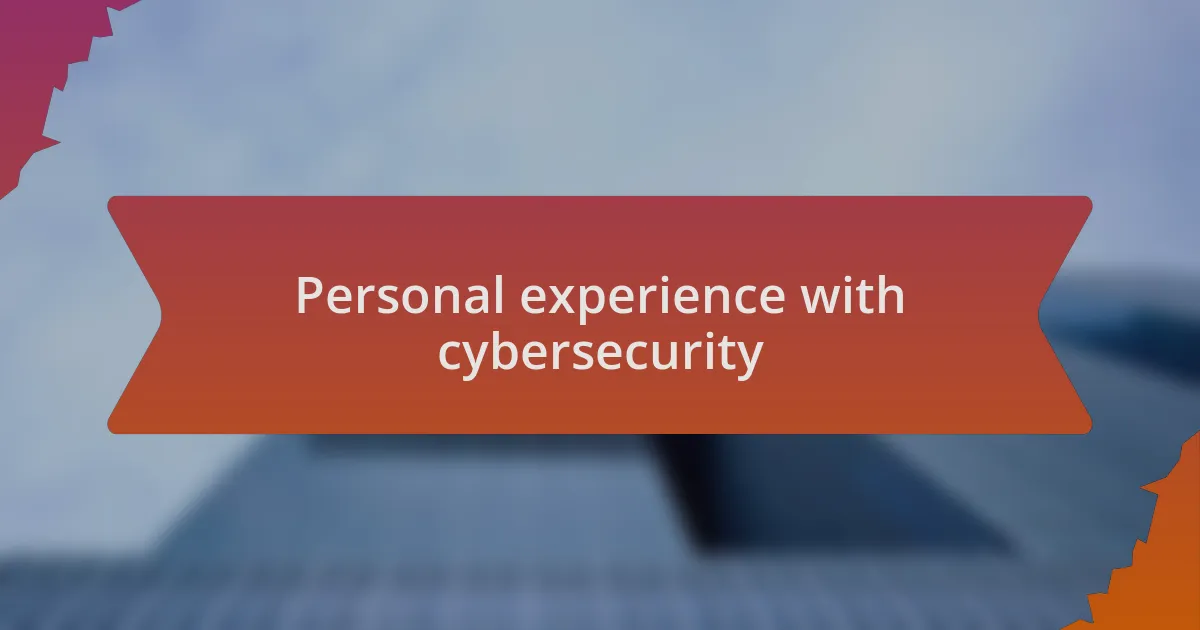
Personal experience with cybersecurity
When it comes to personal experience with cybersecurity, I’ve learned the hard way that neglecting online security can have serious consequences. A few years ago, I received an unexpected email that seemed credible enough to warrant my attention. After clicking a link I later realized was dubious, my accounts were compromised, and it took weeks to regain control. Have you ever faced a situation where a simple click put you at risk? It’s a reminder that vigilance is key.
I’ve also found that using a password manager has transformed how I handle my online security. Initially, I was overwhelmed with the need to create unique passwords for every site I visited, but that all changed when I discovered a password manager. Now, I only need to remember one master password, allowing me to generate complex passwords that enhance security. How much easier would your online life be with this tool? It certainly cut down my stress levels significantly!
Moreover, I’ve come to appreciate the value of community forums and online groups focused on cybersecurity. Engaging with others who share their experiences has opened my eyes to emerging threats I wouldn’t have known about otherwise. I once came across a discussion about recent phishing tactics that prompted me to tighten my security settings right away. Have you considered joining a forum or community for tips and discussions? These conversations can be enlightening and provide real-time insights that are incredibly beneficial.